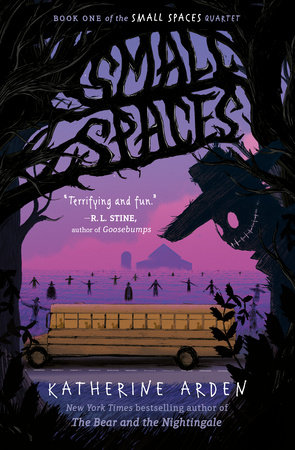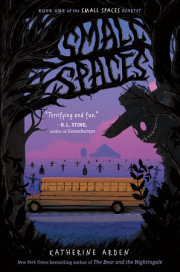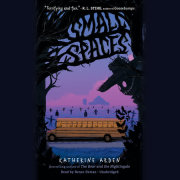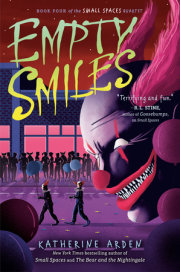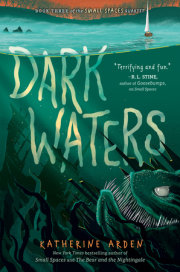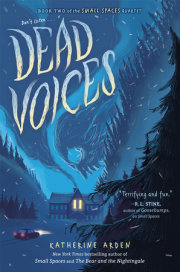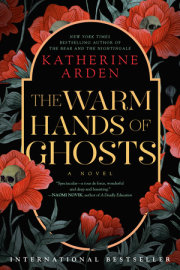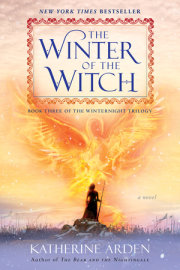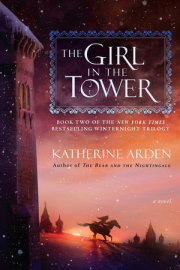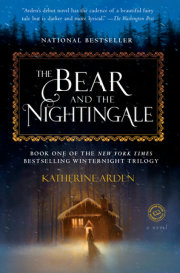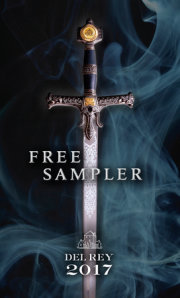She pedaled hard past the hay bales in the roundabout on Main Street, turned onto Daisy Lane and raced past the clapboard houses, where jack-o’-lanterns grinned on every front porch. She aimed her bike to knock down a rotting gray rubber hand groping up out of the earth in the Steiners’ yard, turned again at Johnson Hill and climbed panting up the steep dirt road.
No one came after her. Well, why would they, Ollie thought. She was Off School Property.
Ollie let her bike coast down the other side of Johnson Hill. was good to be alone in the warm sunshine. The river ran silver to her right, chattering over rocks. The fire-colored trees shook their leaves down around her. It wasn’t hot, exactly—but warm for October. Just cool enough for jeans, but the sun was warm when you tilted your face to it.
The swimming hole was Ollie’s favorite place. Not far from her house, it had a secret spot on a rock half-hidden by a waterfall. That spot was Ollie’s, especially on fall days. After mid-September, she was the only one there. People didn’t go to swimming holes once the weather turned chilly.
Other than her homework, Ollie was carrying Captain Blood by Rafael Sabatini, a broken-spined paperback that she’d dug out of her dad’s bookshelves. She mostly liked it. Peter Blood outsmarted everyone, which was a feature she liked in heroes, although she wished Peter were a girl, or the villain were a girl, or someone in the book besides his boat and his girlfriend (both named Arabella) were a girl. But at least the book had romance and high seas adventures and other absolutely not Evansburg things. Ollie liked that. Reading it meant going to a new place where she wasn’t Olivia Adler at all.
Ollie braked her bike. The ground by the road was carpeted with scarlet leaves; sugar maples start losing their leaves before other trees. Ollie kept a running list in her head of sugar maples in Evansburg that didn’t belong to anyone. When the sap ran, she and her mom would—
Nope. No, they wouldn’t. They could buy maple syrup.
The road that ran beside the swimming hole looked like any other stretch of road. A person just driving by wouldn’t know the swimming hole was there. But, if you knew just where to look, a skinny dirt trail went from the road to the water. Ollie walked her bike down the trail. The trees seemed to close in around her. Above was a white-railed bridge. Below, the stream paused in its trip down the mountain. It spread out, grew deep and quiet enough for swimming. There was a cliff for jumping and plenty of hiding places for one girl and her book. Ollie hurried. She was eager go and read by the water and be alone.
The trees ended suddenly, and Ollie was standing on the bank of a cheerful brown swimming hole.
But, to her surprise, there was someone already there.
A slender woman, wearing jeans and flannel, stood at the edge of the water. Her jeans were nice, her flannel soft, but her boots were muddy and worn, the leather cracking across one heel.
The woman was sobbing.
Maybe Ollie’s foot scuffed a rock, because the woman jerked upright and whirled around. Ollie gulped. The woman was pretty, with amber-honey hair. But she had circles under her eyes like purple thumbprints. Streaks of mascara had run down her face, like she’d been crying for awhile.
“Hello,” The woman said, trying to smile. “You surprised me.” Her eyes looked—stretched—the way a dog looks, hiding under the bed during a thunderstorm. Her white-knuckled hands gripped a small, dark thing.
“I didn’t mean to scare you,” Ollie said cautiously.
Why are you crying? she wanted to ask. But it seemed impolite to ask that question to a grown-up, even if her face was streaked with the runoff from her tears.
The woman didn’t reply; she darted a glance to the rocky path by the creek, then back to the water. Like she was looking out for something. Or someone.
Ollie felt a chill creep down her spine. She said, “Are you okay?”
“Of course.” The woman tried to smile again. Fail. The wind rustled the leaves. Ollie glanced behind her. Nothing.
“I’m fine,” repeated the woman. She turned the dark thing over in her hands. Then she said, in a rush, “I just have to get rid of this. Put it in the water. And then—” The woman broke off.
Then? What then? The woman held the thing out over the water. Ollie saw that it was a small black book, the size of her spread-out hand, with a cloth cover, its pages stained deep yellow.
Her reaction was pure reflex. “You can’t throw away a book!” Ollie let go of her bike and jumped forward. Part of her wondered, Why would you come here to throw a book in the river? You can donate a book. There were donation boxes all over Evansburg.
“I have to!” snapped the woman, bringing Ollie up short. The woman went on, half to herself, “That’s the bargain. Make the arrangements. Then give the book to the water.” She gave Ollie a pleading look. “I don’t have a choice, you see.”
Ollie tried to drag the conversation out of crazy town. “You can donate a book if you don’t want it,” she said firmly. “Or—or give it to someone. Don’t just throw it in the river.”
“I have to,” said the woman again.
“Have to drop a book in the river?”
“Before tomorrow,” said the woman. Almost to herself, she whispered, “Tomorrow’s the day.”
Ollie was nearly within arm’s reach now. The woman smelled sour—frightened. Ollie, completely at sea, decided to ignore the stranger elements of the conversation. Later, she would wish she hadn’t. “If you don’t want that book, I’ll take it,” said Ollie. “I like books.”
The woman shook her head. “He said water. Upstream. Where Lethe Creek runs out of the mountain. I’m here. I’m doing it!” She shrieked the last sentence as though someone besides Ollie was listening. Ollie had to stop herself from looking behind her again.
“Why?” she asked. Little mouse feet crept up her spine.
“Who knows?” the woman whispered. “Just his game, maybe. He enjoys what he does, you know, and that is why he’s always smiling—” She smiled too, a joyless pumpkin-head grin.
Ollie nearly yelped. But instead, her hand darted up and she snatched the book. It felt old under her fingers, gritty with dust. Surprised at her own daring, Ollie hurriedly backed up.
The woman’s face turned red. “Give that back!” A glob of spit hit Ollie in the cheek.
“I don’t think so,” said Ollie. “You don’t want it anyway.” She was backing toward her bike, half expecting the woman to fling herself forward.
The woman was staring at Ollie as if really seeing her for the first time. “Why—?” A horrified understanding dawned on her face that Ollie didn’t understand. “How old are you?”
Ollie was still backing toward her bike. “Twelve,” she answered, by reflex. Almost there . . .
“Twelve?” the woman breathed. “Twelve. Of course, twelve.” Ollie couldn’t tell if the woman were giggling or crying. Maybe both. “Its his kind of joke—” She broke off, leaned forward to whisper. “Listen to me, Twelve. I’m going to tell you one thing, because I’m not a bad person. I just didn’t have a choice. I’ll give you some advice, and you give me the book.” She had her hand out, fingers crooked like claws.
Ollie, poised on the edge of flight, said, “Tell me what?” The stream rushed and rippled, but the harsh sounds of the woman breathing were louder than the water.
“Avoid large places at night,” the woman breathed. “Keep to small.”
“Small?” Ollie was torn between wanting to run and wanting to understand. “That’s it?”
“Small!” shrieked the woman. “Small spaces! Keep to small spaces or see what happens to you! Just see!” She burst into wild laughter. The animatronic witch sitting outside the Brewsters’ next to a cauldron of dry ice laughed like that. “Now give me that book!” Her laughter turned into a whistling, shrieking sob; her hands reached out, snatching.
Ollie heaved the Schwinn around and fled with it up the trail from the creek. The woman’s footsteps scraped behind. “Come back!” she panted. “Come back!”
Ollie was already on the main road, her leg thrown over the bike’s saddle. She rode home as fast as she could, bent low over her handlebars, hair streaming in the wind, the book lying in her pocket like a secret.
Copyright © 2018 by Katherine Arden. All rights reserved. No part of this excerpt may be reproduced or reprinted without permission in writing from the publisher.

